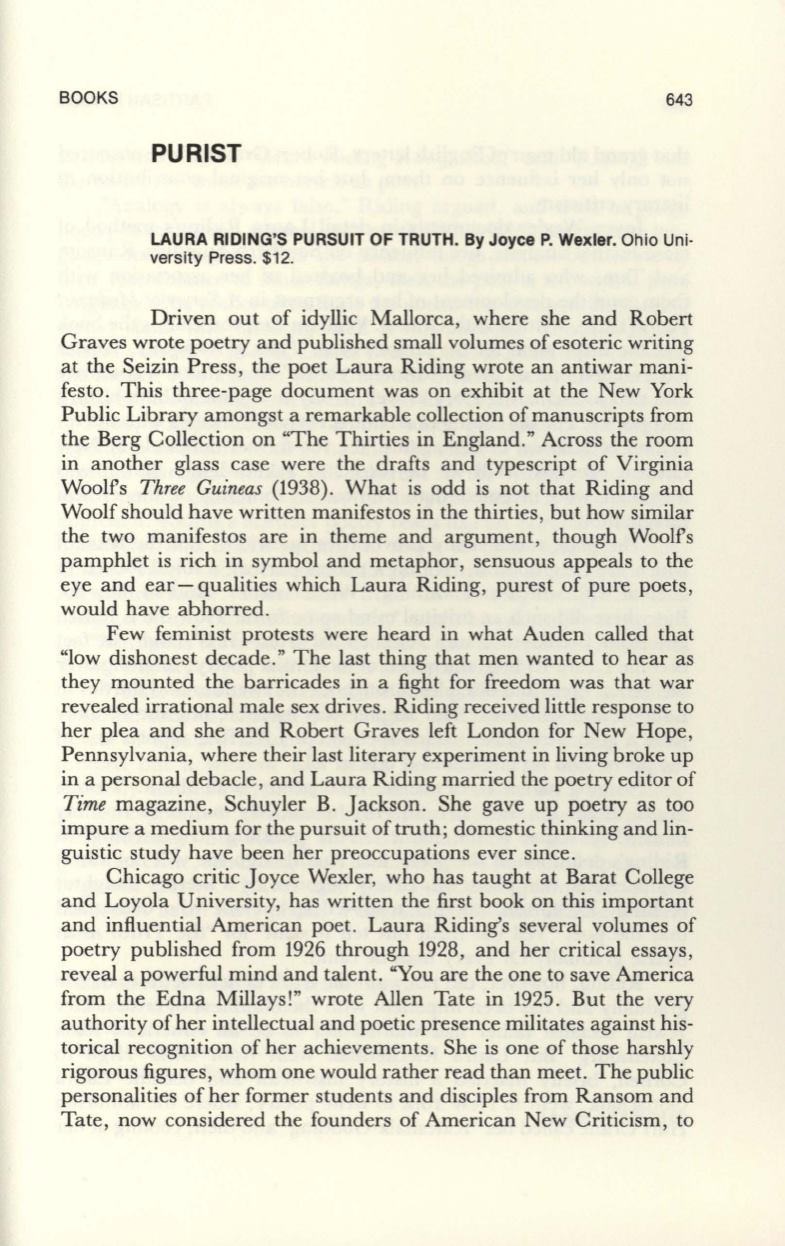
BOOKS
643
PURIST
LAURA RIDING'S PURSUIT OF TRUTH. By Joyce P. Wexler.
Ohio Uni·
versity Press. $12.
Driven out of idyllic Mallorca, where she and Robert
Graves wrote poetry and published small volumes of esoteric writing
at the Seizin Press, the poet Laura Riding wrote an antiwar mani–
festo. This three-page document was on exhibit at the New York
Public Library amongst a remarkable collection of manuscripts from
the Berg Collection on "The Thirties in England." Across the room
in another glass case were the drafts and typescript of Virginia
Woolfs
Three Guineas
(1938). What is odd is not that Riding and
Woolf should have written manifestos in the thirties, but how similar
the two manifestos are in theme and argument, though Woolfs
pamphlet is rich in symbol and metaphor, sensuous appeals to the
eye and ear - qualities which Laura Riding, purest of pure poets,
would have abhorred.
Few feminist protests were heard in what Auden called that
"low dishonest decade. " The last thing that men wanted to hear as
they mounted the barricades in a fight for freedom was that war
revealed irrational male sex drives. Riding received little response to
her plea and she and Robert Graves left London for New Hope,
Pennsylvania, where their last literary experiment in living broke up
in a personal debacle, and Laura Riding married the poetry editor of
Time
magazine, Schuyler B. Jackson . She gave up poetry as too
impure a medium for the pursuit of truth; domestic thinking and lin–
guistic study have been her preoccupations ever since .
Chicago critic Joyce Wexler, who has taught at Barat College
and Loyola University, has written the first book on this important
and influential American poet. Laura Riding's several volumes of
poetry published from 1926 through 1928, and her critical essays,
reveal a powerful mind and talent. "You are the one to save America
from the Edna Millays!" wrote Allen Tate in 1925 . But the very
authority of her intellectual and poetic presence militates against his–
torical recognition of her achievements. She is one of those harshly
rigorous figures, whom one would rather read than meet. The public
personalities of her former students and disciples from Ransom and
Tate, now considered the founders of American New Criticism, to


